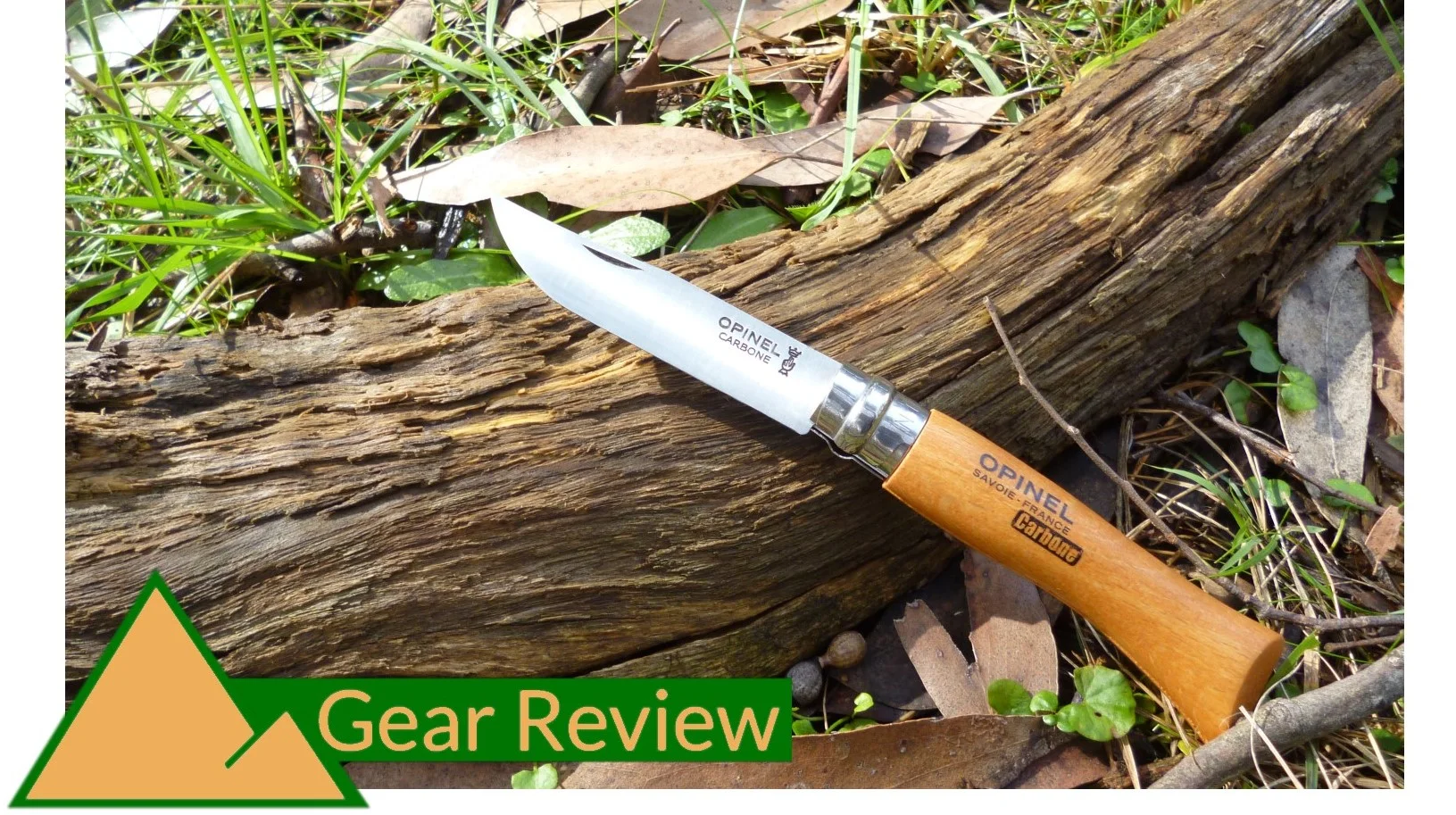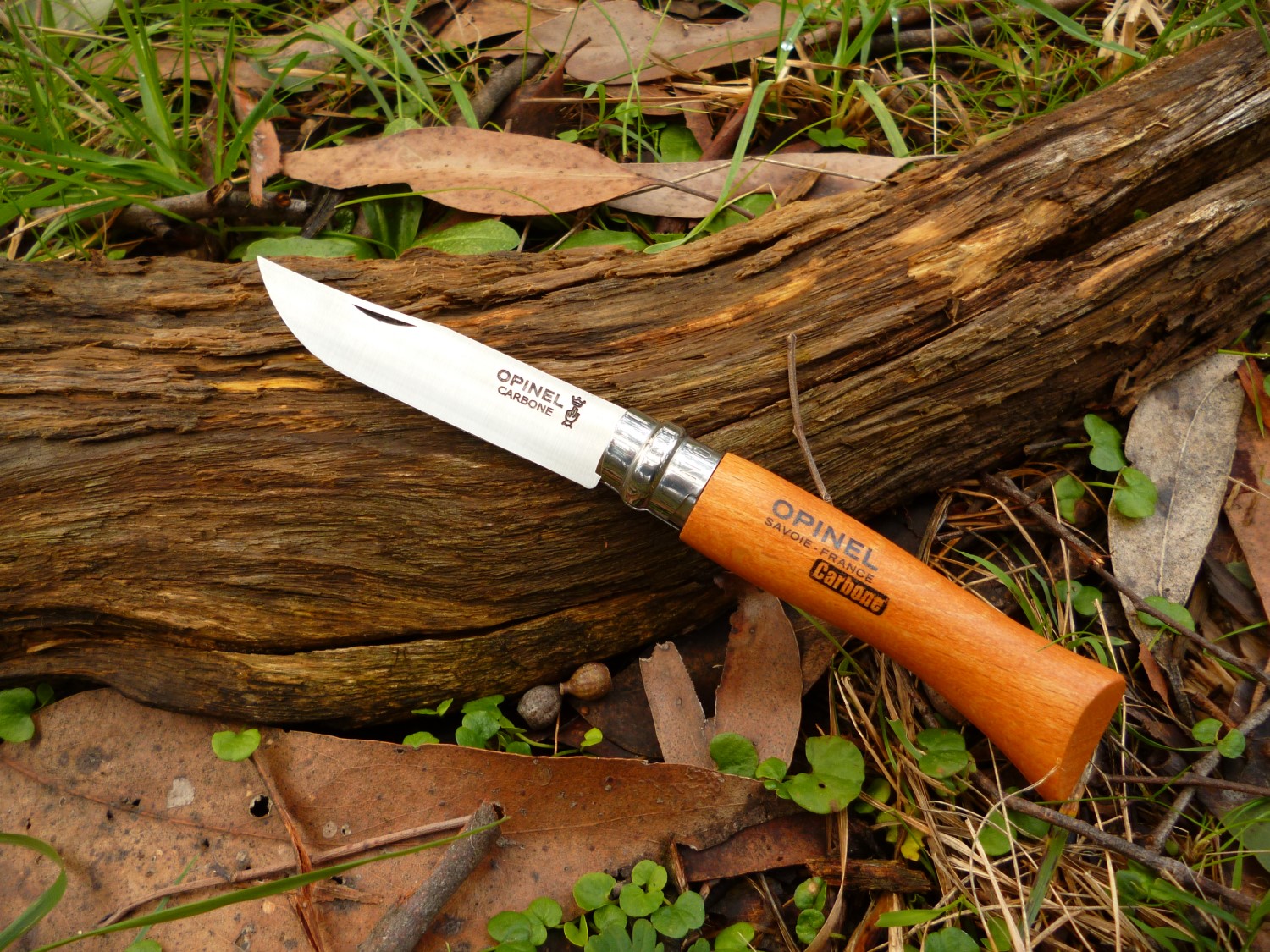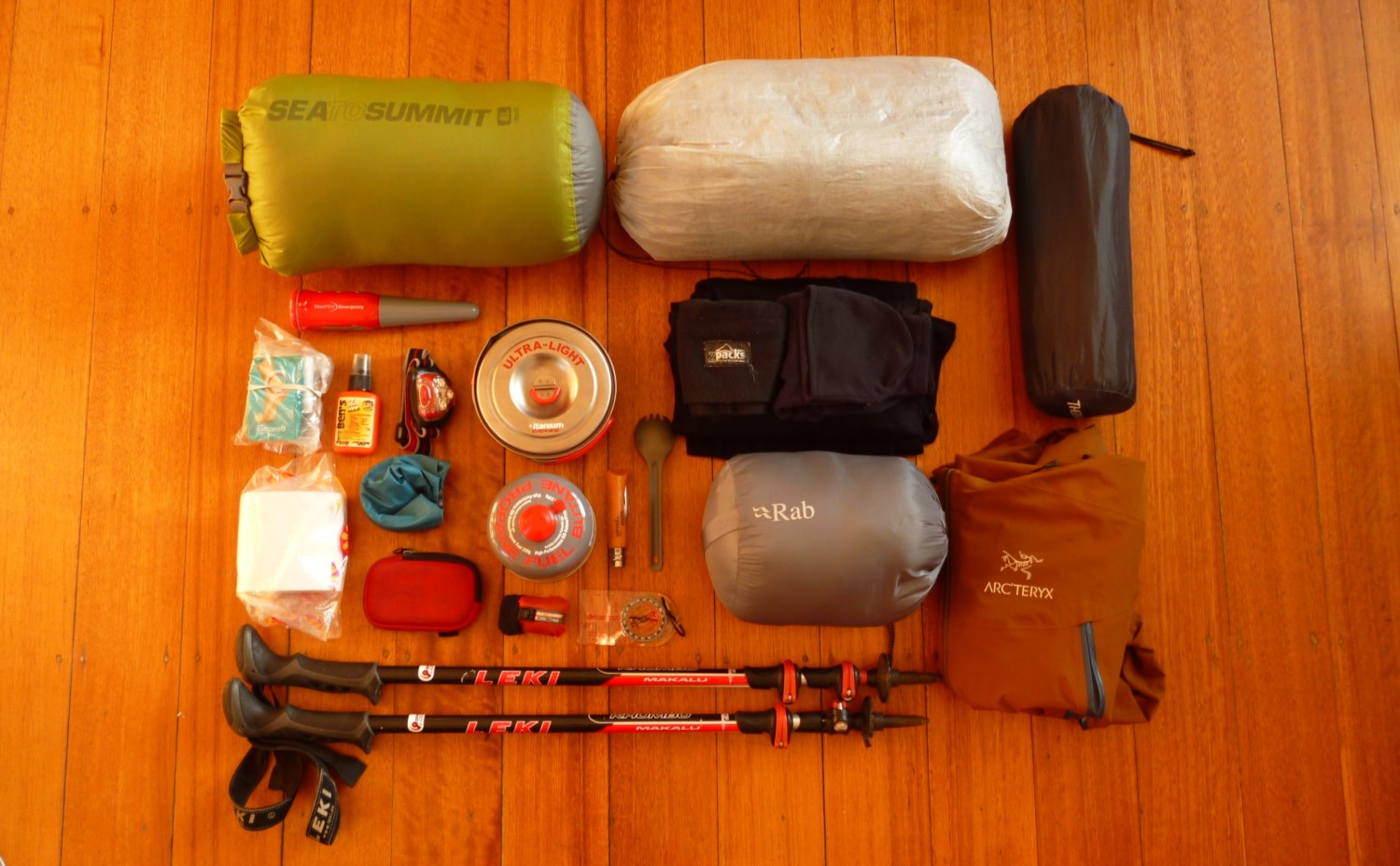Opinel No. 7 Pocket Knife Review
JUMP TO: QUICK FACTS / BLADE MATERIALS / BLADE LENGTH / HANDLE / LOCKING MECHANISM / WEIGHT / PRICE & WHERE TO BUY / ALTERNATIVES / IMAGE GALLERY
Author: Sam Brilleman
Is the Opinel No. 7 the perfect pocket knife for general backpacking use?
F**k yeah, we think so.
It is well built, durable, lightweight, and great value.
If you are looking at purchasing a pocket knife for lightweight backpacking tasks such as cooking & gear repairs and are not keen to spend lots of money then this knife should be at the top of your list!
QUICK FACTS
The Opinel No. 7 — it is a good looking and reliable knife available for a bargain price.
WEIGHT: 1.3 oz / 36 grams
BLADE LENGTH: 3.0 in / 77 mm
BLADE MATERIAL: Carbon steel or Stainless steel
HANDLE MATERIAL: Beechwood
LOCKING MECHANISM: Yes (open and closed)
BLADE MATERIALS
The Opinel No. 7 pocket knives are manufactured with a blade made from either carbon steel or stainless steel.
CARBON STEEL
The carbon steel blade shown in the photo is near new so looks spotless. But rest assured it is likely to start showing signs of corrosion of time.
Carbon steel is the original material used for the Opinel range of pocket knives. It is an extremely hard steel, providing a long lasting cutting edge. It is also relatively easy to resharpen, even with little know-how.
The downside to carbon steel is that it is sensitive to corrosion. If you have a carbon steel blade, then you need to ensure it is not left damp after use. Before closing the blade after use make sure it is 100% dry.
STAINLESS STEEL
Stainless steel is the newer addition to the Opinel line up. Although stainless steel is slightly more expensive than carbon steel, it is much more resistant to corrosion. This makes it a better choice when you want a pocket knife that you can just "pack away and forget".
Of course general maintenance of the knife (e.g. cleaning and drying after use) is still good practice. But with a stainless steel blade, you can afford to be more complacent with the care of your knife.
If you are looking for a general backpacking knife then we recommend the stainless steel blade.
It requires less maintenance and is therefore more suitable for general purpose backpacking.
BLADE LENGTH
The Opinel pocket knife we have chosen to review here is the Opinel No. 7, which has a blade length of 3 inches. However the Opinel pocket knives are manufactured in a variety of sizes ranging from No. 2 (1.4 inch / 35 mm blade) up to No. 12 (4.7 inch / 120 mm). So you can certainly dial in your perfect size!
It really is a family of knives! Ranging from the No. 2 (1.4 inch blade) through to No. 12 (4.7 inch blade).
For lightweight backpacking adventures, where the majority of tasks will be cooking and perhaps the odd repair job, we recommend either the:
These sizes are sufficient for most cooking and campsite tasks, whilst also providing a knife that is lightweight and compact.
HANDLE
The rounded handle on the Opinel No. 7 is big enough to be comfortable in your hand.
The beechwood handle is both relatively easy to hold and aesthetically pleasing.
The rounded handle design used on the Opinel No. 7 is more comfortable for extended use than a slim handle like that found on the Kershaw Leek.
We think that the No. 6 size upwards all have a large enough handle to make gripping the knife relatively easy. The material is somewhat smooth, but provides enough grip for all but the most heavy duty tasks.
LOCKING MECHANISM
Another upside of choosing the No. 6 size or larger is that they include a locking mechanism ("safety ring"). The safety ring can be used to keep the knife locked closed during transport, or locked open during use. This feature is not available on the No. 5 knife or smaller.
WEIGHT
The entire range of Opinel pocket knives are all lightweight relative to their blade length, their ease of use, and their quality.
The Opinel No. 7 weighs only 1.3 ounces (36 grams) which is very lightweight for three inches of straight blade. For comparison, the Kershaw Leek — one of our other favourite backpacking knives — has a 2.9 inch blade but weighs in at 3.1 ounces.
Nonetheless, if you are an ultralight hiker counting every ounce of your base weight, then perhaps consider the smaller sizes in the Opinel range. For instance, the Opinel No. 3 weighs in at only 7 grams which is outrageously light!
PRICE & WHERE TO BUY
The Opinel No. 7 is hard to beat in terms of both price and value. If you are looking for a functional backpacking knife at a bargain basement price, then this is the knife for you.
The Opinel range of pocket knives are available from a variety of retailers. However, most retailers usually only carry a subset of the full range of sizes. Check out what is available from the major retailers using the links below.
ALTERNATIVES
Of course the Opinel pocket knives — although well made — are not high end options. If you looking for a higher quality knife with a nicer finish, more strength, and greater durability then there are better knives out there.
If you are willing to spend a bit more money then be sure to check out the Kershaw Leek (mid-range) or Benchmade Mini-Barrage 585 (expensive). They are superior knives to the Opinel No. 7 but they of course come with a higher price tag.
For more information check out our review of the Best Pocket Knives for Backpacking.
IMAGE GALLERY
The image gallery below shows the Opinel No. 7 (82 mm blade) with a carbon steel blade.
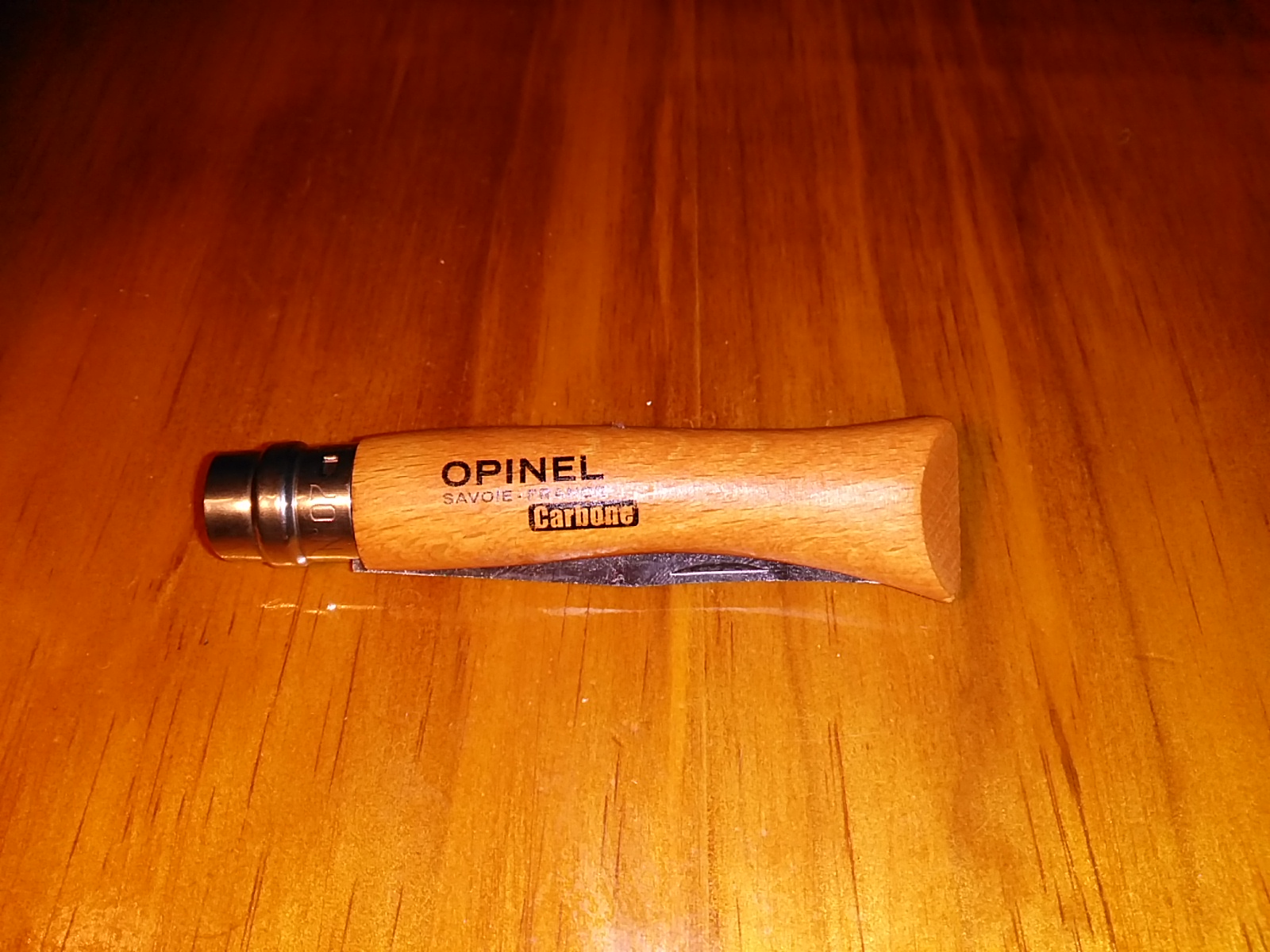
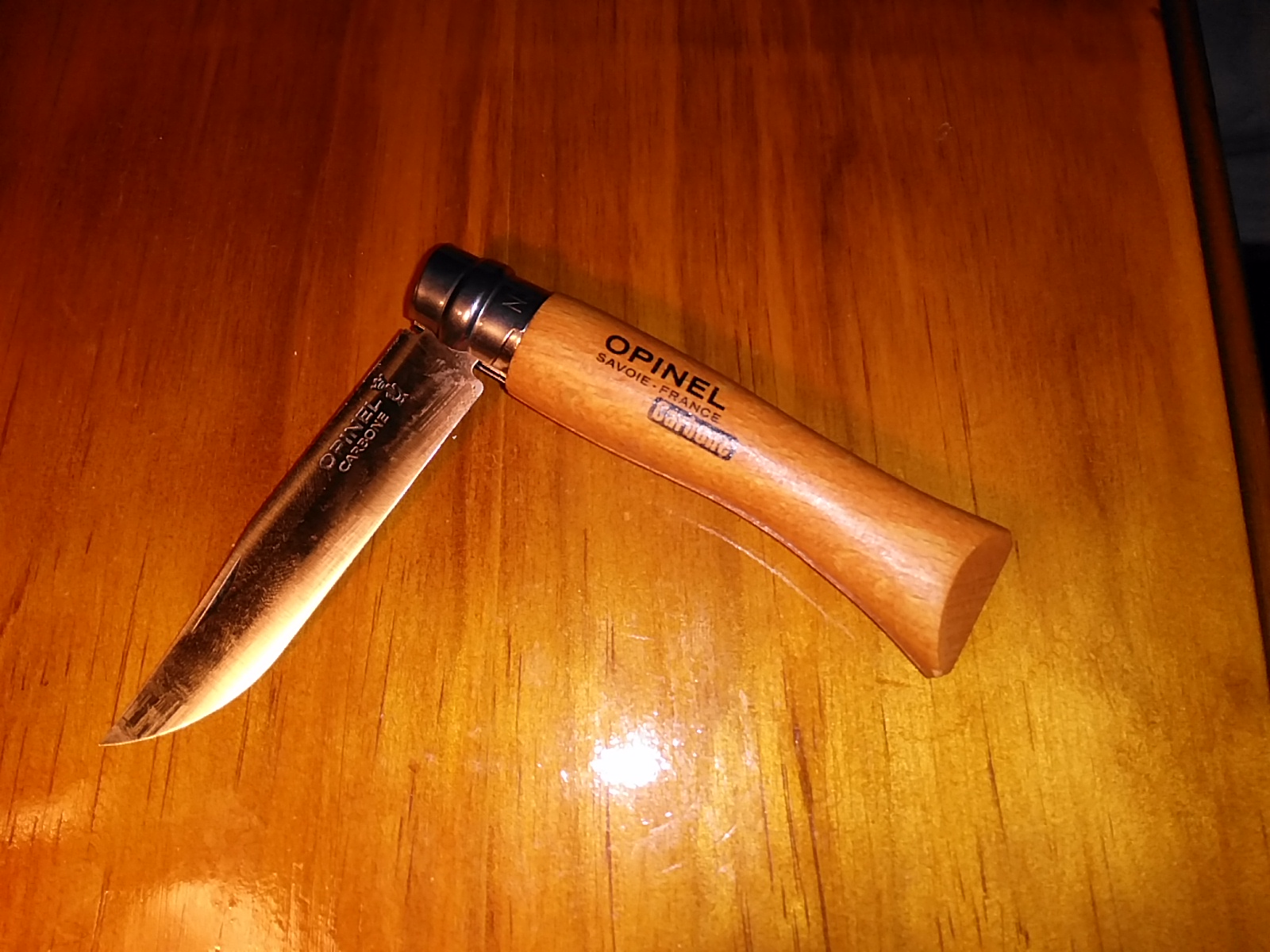
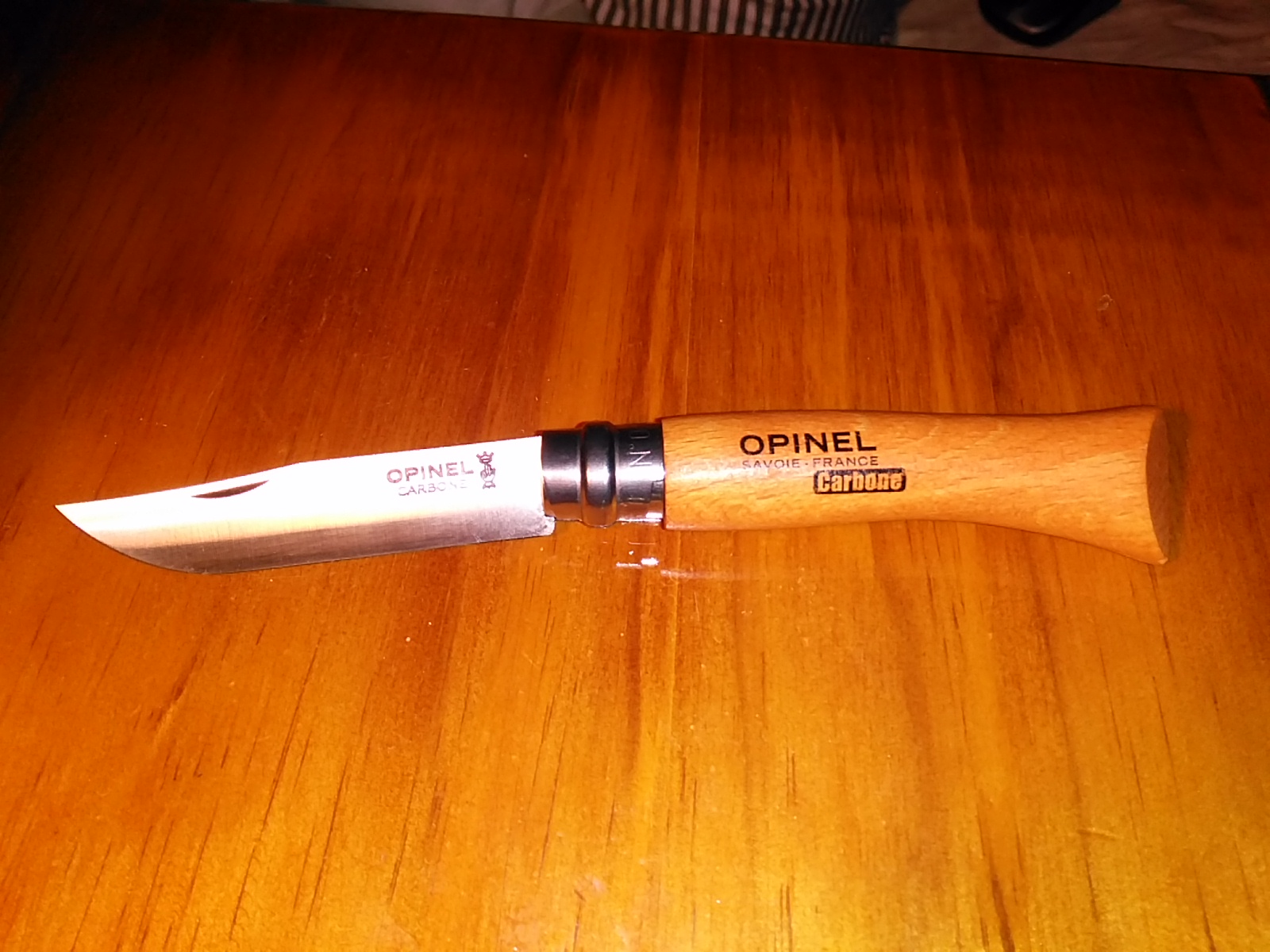
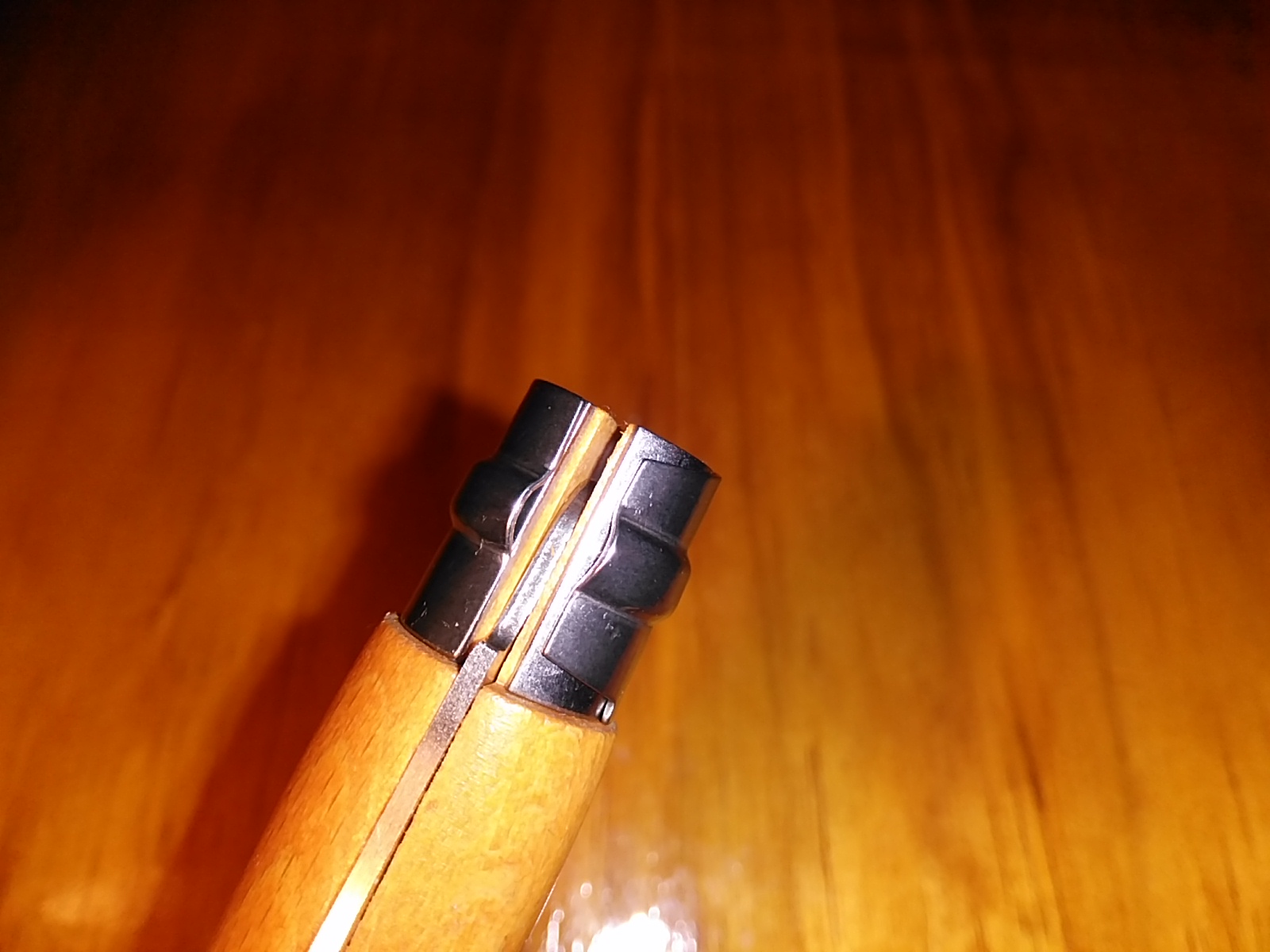
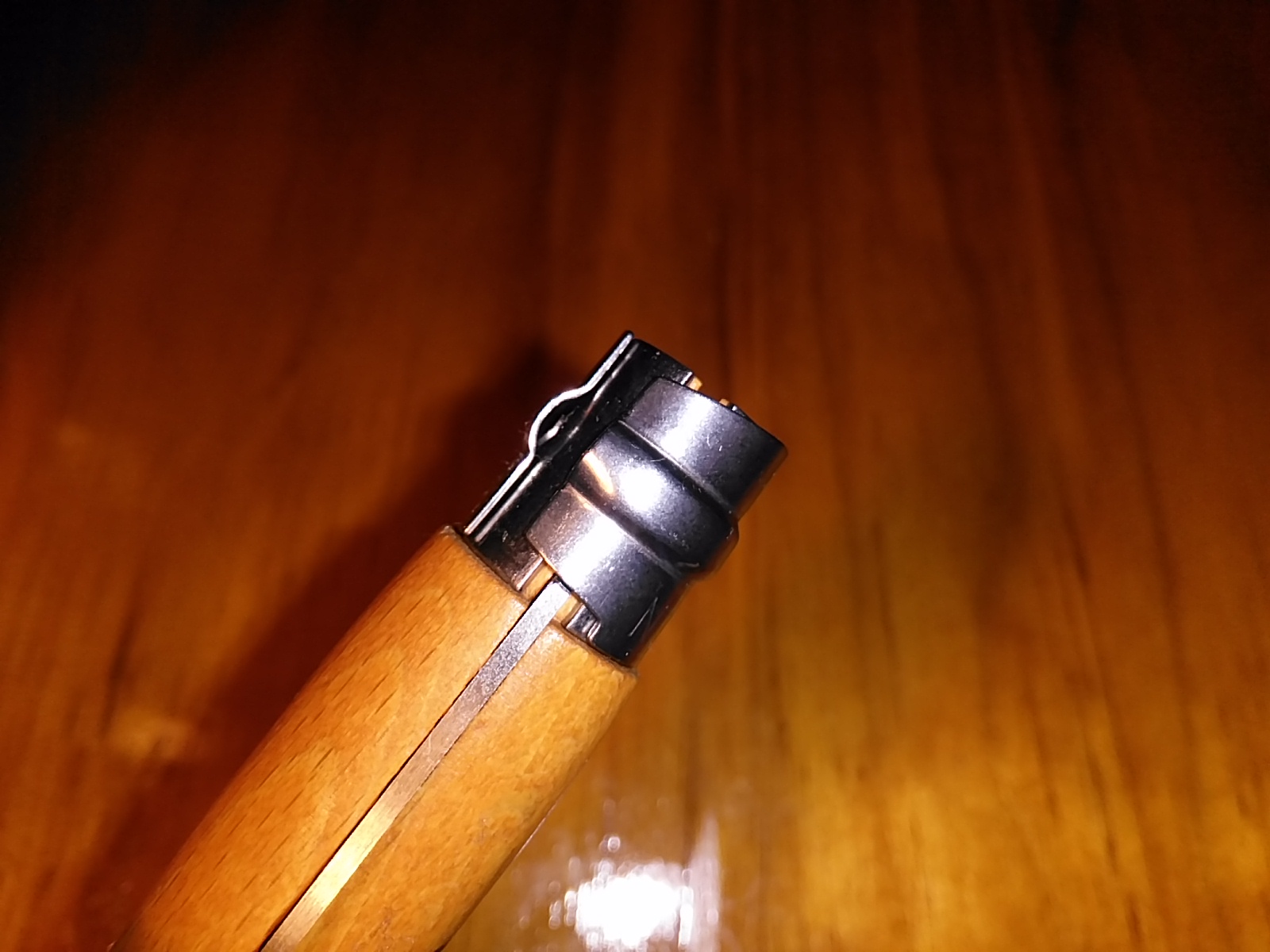
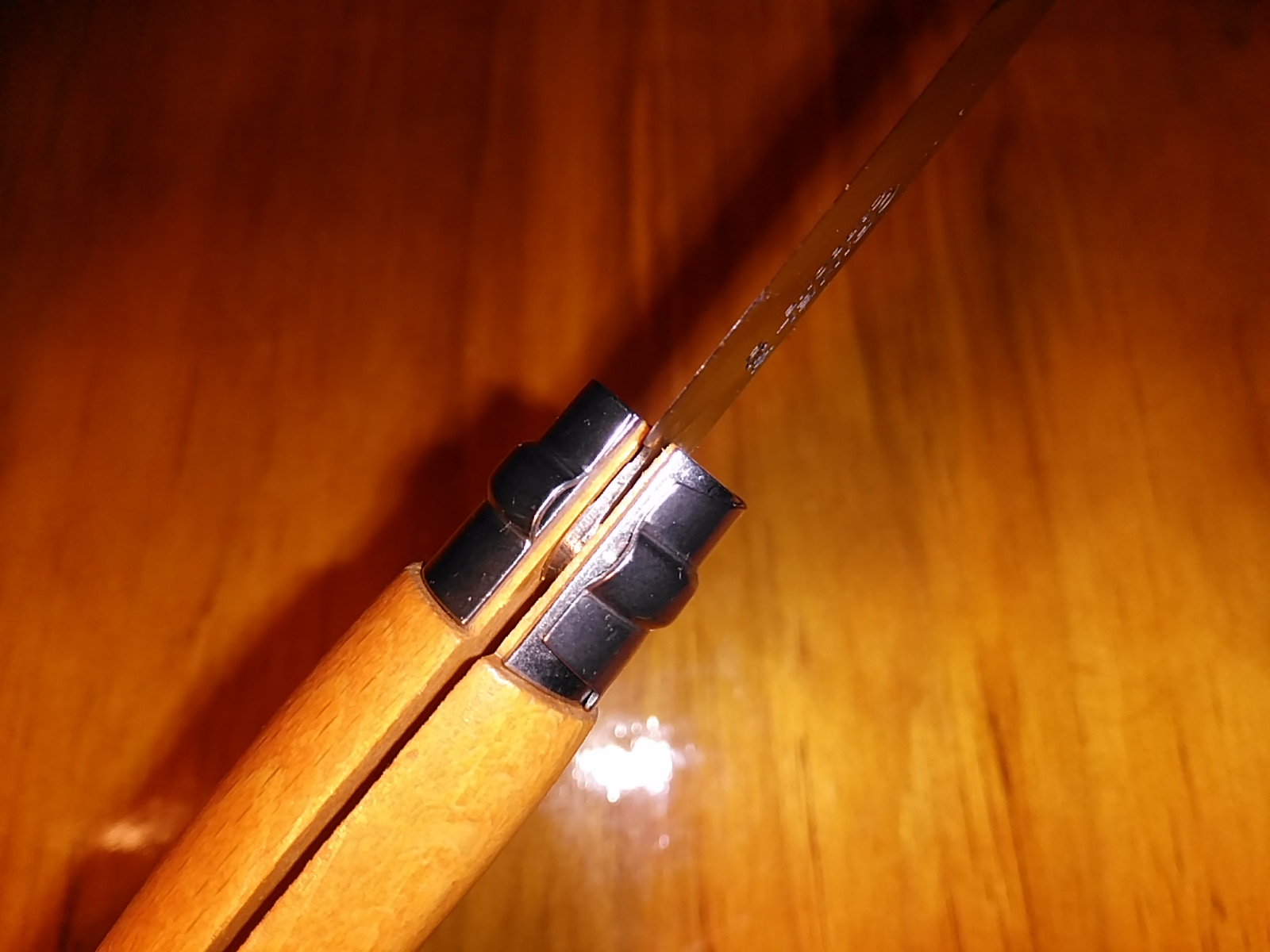
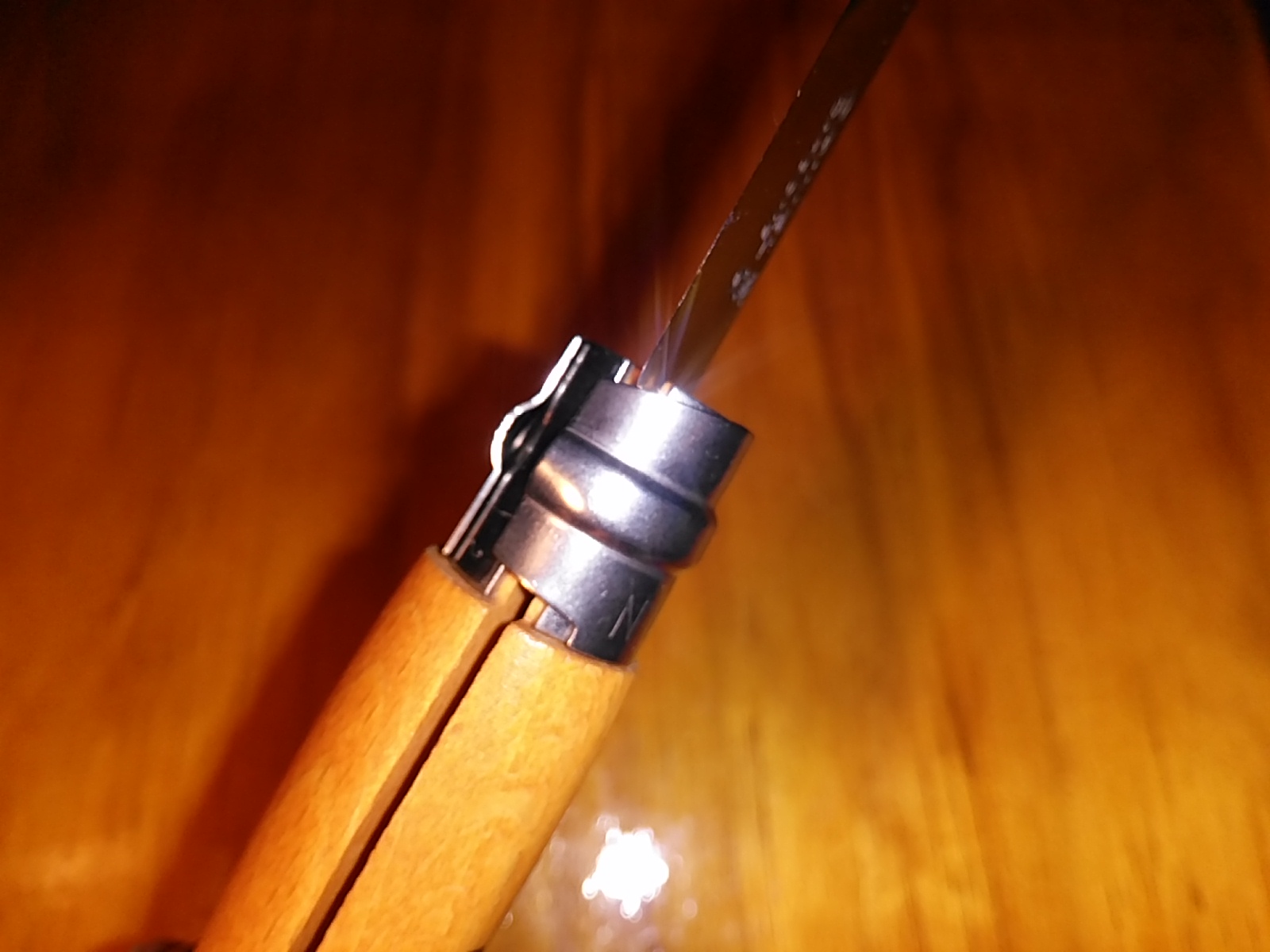
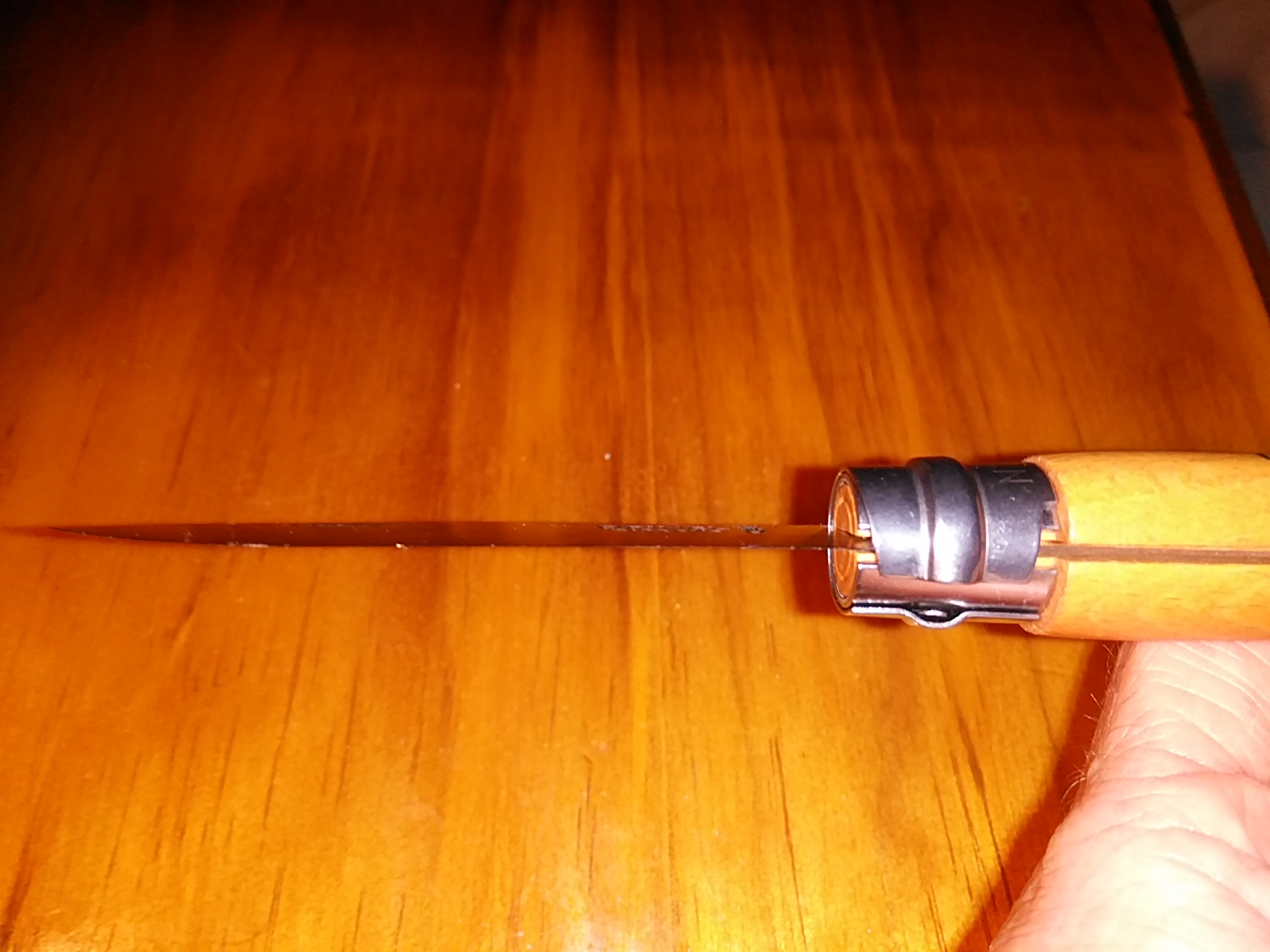
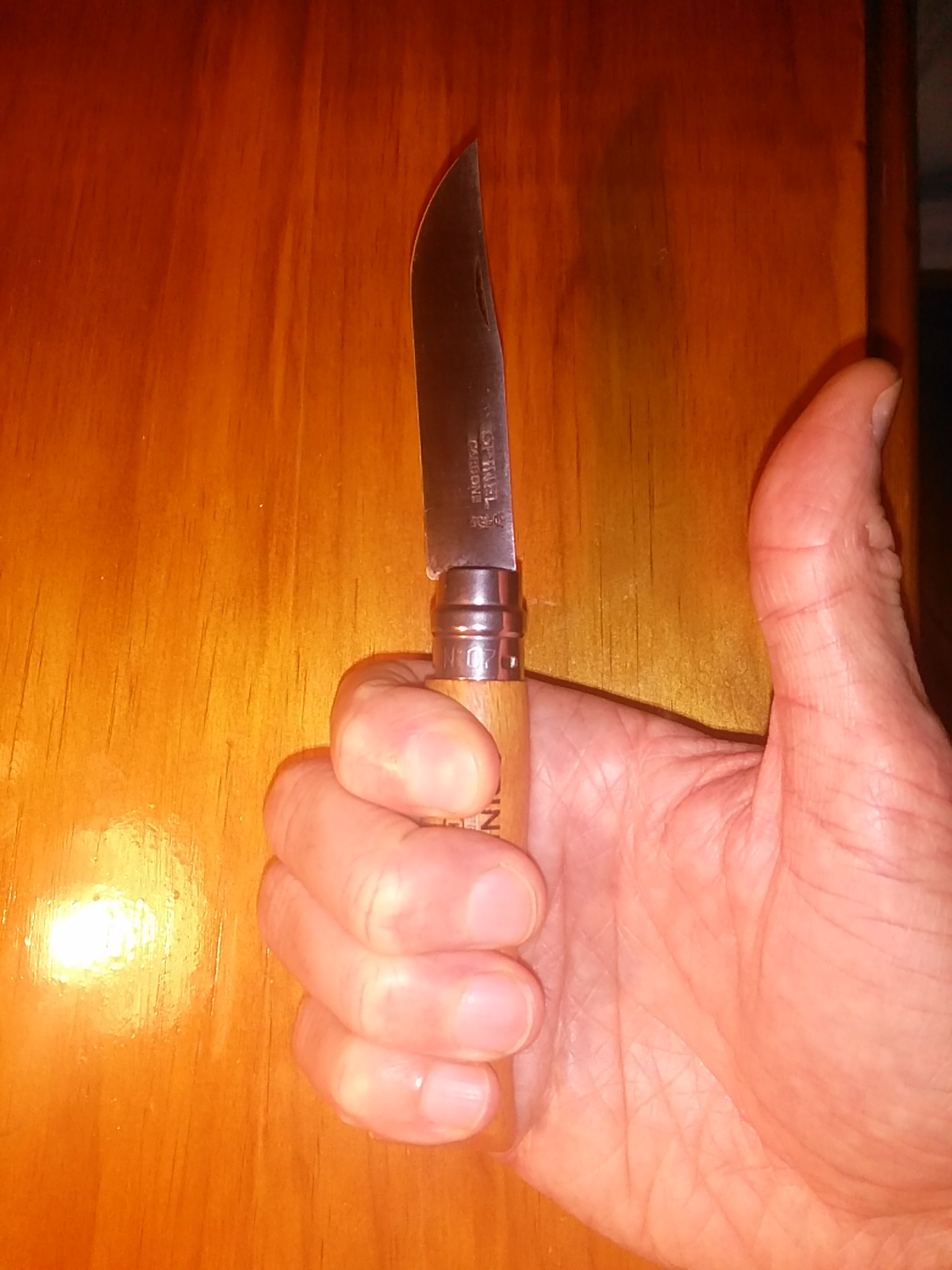
DISCLOSURE
I paid full price for the Opinel No. 7 that I used as the basis for this review.
MORE INFORMATION
If you enjoyed reading this review then you'll likely love reading some of our other review pages targeted at lovers of backpacking gear:
Happy hiking and take care out there in the wild!

